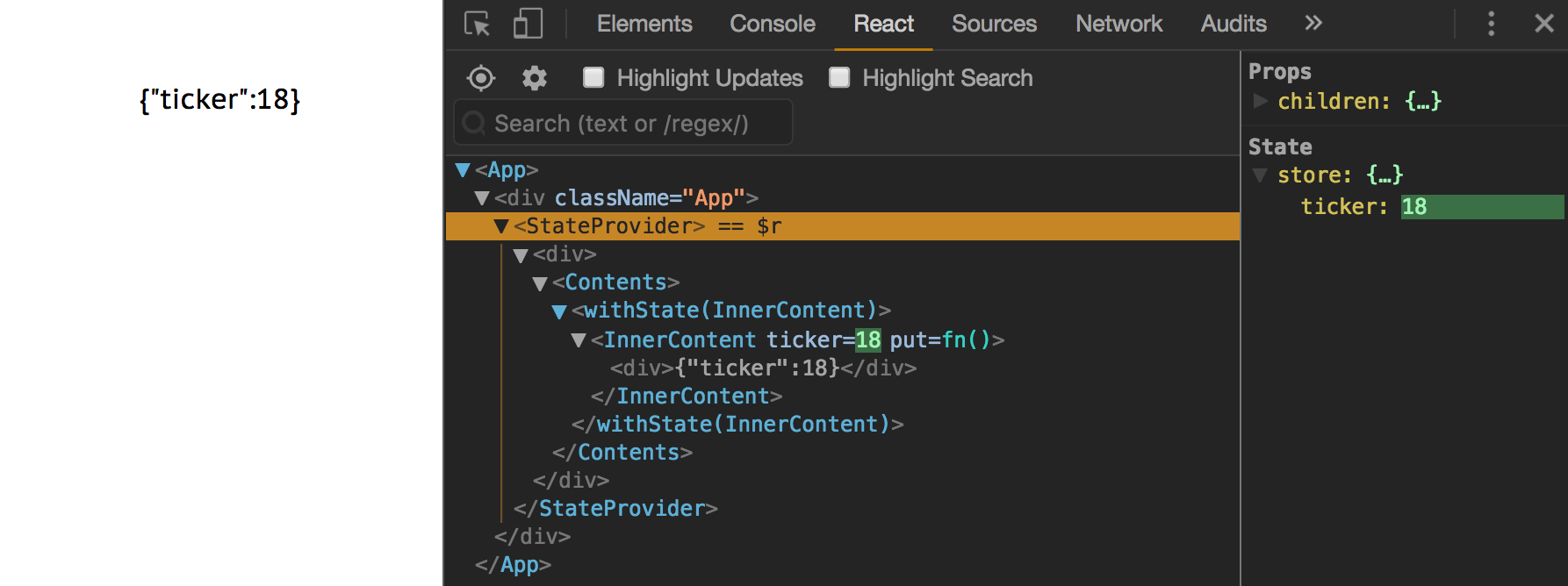Centralized state for React apps ⚜️
This is an alpha project, not ready for production use
See Unstated for a production-ready library with a similar easy-to-use, function-based API
- Facilitate exchange of information between components by providing a global store and means to update it
- Provide a developer-friendly API that plays nicely with plain Javascript functions and Promises
App.js The top-level component imports StateProvider which sets up the global store
import React, { Component } from "react"
import { StateProvider } from "richilieu" // ◀
import Contents from "./Contents"
class App extends Component {
render() {
return (
<StateProvider>
<Contents />
</StateProvider>
)
}
}
export default AppContents.js Intermediate components are not aware of the store
import React from "react"
import { withState } from "richilieu" // ◀
import InnerContent from "./InnerContent"
class Contents extends Component {
render() {
return <Inner />
}
}
export default ContentsInnerContent.js Deeper in the tree, the InnerContent component connects to the restore and receives the store's state as props, as well as the put function to change the store
import React from "react"
import { withState } from "richilieu"
const InnerContent = props => {
window.setTimeout(async () => {
const partialState = {
ticker: 1 + props.ticker || 0,
}
const newStore = await props.put(partialState) // ◀
console.log("newStore: ", newStore)
}, 2000)
return (
<div>
{JSON.stringify(props)}
</div>
)
}
InnerContent.displayName = InnerContent
export default withState(InnerContent)Provides store via context to withState wrappers
withState(MyComponent)A function that returns a new component that receives each key in the store as a prop, as well as the put function.
Extension Point: The wrapped component can implement shouldComponentUpdate to ignore changes to certain parts of the store
Possible Future API: The component returned by withState may take a prop to subscribe only to a certain key or "slice" of store state
Components connected to the store receive a put prop that they can call to change the global state. This has the same API as setState (it's calling setState in the StoreProvider) but instead taking a second callback argument, it returns a Promise that resolves with the new state. In most cases the resolved value will not be needed because the component will receive the new state as props.
fetch('/logout')
.then(res => props.put({
user: {
loggedIn: false
}
})
.catch(err => {
props.put({
errors: props.errors.concat([err])
})
})- No action creators, no reducers, no dispatcher; update batching is managed by React's setState
npm run transpileStarts babel watcher, suitable for developing against a local project that can resolve package.json'smodulefieldnpm run buildBundles the library with Webpack
